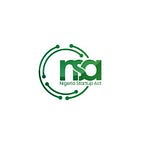The NSB and its Harmonization with Other Laws
The Nigeria Startup Bill, which is currently awaiting the President’s assent, is one of the most anticipated laws in the tech ecosystem. The Bill was drafted after several consultations with the government, private individuals, stakeholders and MDAs.
One of the underlying reasons for the utilization of the big-tent approach was to eliminate conflict of laws. Thus, it was pertinent to sync the provisions of the NSB with all relevant laws. This article highlights certain provisions of the NSB that have been harmonised with existing relevant laws.
- The Nigeria Data Protection Regulation 2019: The NDPR is the only comprehensive data protection law in Nigeria geared towards ensuring the safeguard of personal data. Since its enactment by NITDA, data controllers (startups inclusive) have had to comply strictly with its provisions in terms of adhering to core principles such as consent, data minimisation, purpose limitation, data security and cross-border data transfer, etc. In ensuring harmonisation, the NSB under section 46 provides that the use and processing of personal data shall be in a responsible manner and in compliance with extant data protection laws and regulations in Nigeria.
- Nigeria Export Processing Zones Act (NEPZA): The NEPZA Act 2011 grants tax incentives to companies trading in its export zones. In the same vein, the NSB under section 45 provides that the Secretariat shall collaborate with the Nigeria Export Processing Zones Authority to establish a Technology Development Zone (“Zone”) in Nigeria to spur the growth and development of startups, accelerators and incubators. According to the NSB, these Zones, when created, shall be entitled to the existing incentives provided under the Nigeria Export Processing Zones Act.
- Pioneer Status Under the Industrial Development (Income Tax Relief) Act: The Pioneer Status Incentive was established by the Industrial Development (Income Tax Relief) Act, no. 22 of 1971 and is a tax holiday which grants qualifying industries and products relief from payment of corporate income tax for an initial period of three years, extendable for one or two additional years. Under section 24 of the NSB, labelled startups, which fall within industries captured under the extant Pioneer Status Incentives(PSI) Scheme may apply to the Nigerian Investment Promotion Commission (NIPC) for the grant of the tax reliefs and incentives under the PSI Scheme.
- The Industrial Training Fund (Amendment) Act 2011: The ITF Act was established in 1971 to encourage the acquisition of skills in industry and commerce in Nigeria with the view to generating a pool of indigenous trained manpower sufficient to meet the needs of the economy. The Act which was later amended in 2011 mandates employers of at least 5 employees and those with an annual turnover of 50 million and above to contribute 1% of their annual payroll to the ITF out of which a percentage would be used to organise training for employees. Pursuant to the ITF Act, the NSB under section 21 (2) provides that a startup may access training facilitated by the Industrial Training Fund and any organization, that partners with the Secretariat, for the training of entrepreneurs and their employees.
Although yet to be assented by the President, the governing authorities and stakeholders are poised to ensure that there is no conflict between the NSB and other laws. Hence, one of the functions of the National Council for Digital Innovation and Entrepreneurship as created by the NSB is its power to give overall direction for the harmonisation of laws and regulations that affect startups in Nigeria. It is hoped that the Council lives up to the above provision upon passage of the Bill into an Act.
To learn more about the NSB, you can start here.
Do you want to keep up with all the news on the NSB? Sign up for our newsletter.
Also, subscribe to our YouTube channel; we promise to share very insightful and educational videos with you there.
Visit our website and follow us on Instagram, Facebook, LinkedIn, and Twitter to keep up with the project and learn any new information as soon as it comes up. You can email hello@startupbill.ng for partnership and inquiries.
